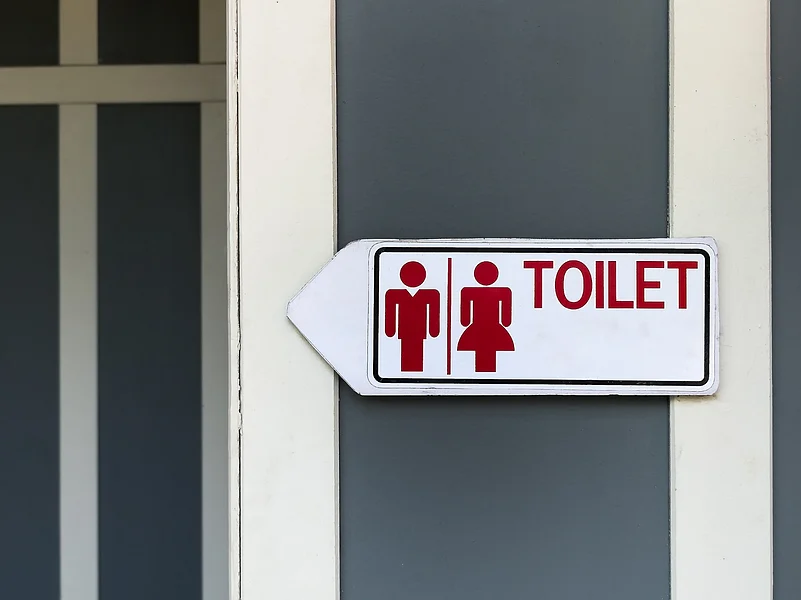Himachal Pradesh recently found itself embroiled in an unusual controversy over a proposed ‘toilet tax’. The debate over this tax began after an early morning notification issued on September 21, 2024, from the state government’s Jal Shakti department, which blew into a day-long storm of confusion and criticism, prompting the state administration to quickly issue a partial rollback by the evening.
The tax proposal triggered political and public uproar, leading to questions over whether it was a necessary fiscal measure amid a financial crisis or an unjust burden on the citizens.
Read More: What To Expect Out Of Proposed Tax Reforms?
What Is Toilet Tax?
The term ‘toilet tax’ came from the controversial clause in a notification issued by the Himachal Pradesh government, proposing to levy Rs 25 per month for each toilet seat in establishments, such as houses, offices and other buildings using their own water sources, but connected to the government’s sewage system.
This tax was initially aimed at urban areas, where such establishments rely on private water sources, but still benefit from the public sewage infrastructure. The homes built in the urban areas typically have multiple washrooms and would have been liable to higher charges after the implementation of this tax. The state, home to over 7.5 million people, constitutes five municipal corporations, 29 municipalities, and 17 nagar panchayats.
However, the proposed toilet tax, which was aimed at plugging the state’s revenue shortfall, caused confusion and led to accusations that it was unfairly targeting citizens and businesses.
Chief Minister Sukhvinder Singh Sukhu was quick to address the controversy. He dismissed it as political manoeuvring by the opposition, which, according to him, was seeking to capitalise on public unrest for electoral gains. In a statement on October 4, 2024, Sukhu denied the existence of any such ‘toilet tax’ and explained that the notification was misinterpreted.
The much-debated notification was repealed later the same day, but not before it had already made its way to a few municipal corporation offices and had sparked public outcry, particularly in Dharamshala, where it was first leaked to the media.
Financial Crisis Vs Water Policies
One reason being cited for the implementation of this toilet tax is Himachal Pradesh’s ongoing financial crunch. The Sukhu government has been grappling with budgetary challenges, which led to the introduction of several fiscal policies and measures. This included a water cess in the rural areas, effective from October 1, 2024. The previous BJP government had provided free water to rural households, but this was revoked under the new administration as part of the government’s efforts to rationalise subsidies.
Instead, a nominal charge of Rs 100 per month was introduced for rural domestic consumers. Such shift in the water policy, including the proposed (but now repealed) ‘toilet tax’, has been viewed as part of the state’s broader efforts to generate revenue. The government argued that even ‘five-star hotels’ were benefitting from the free water policy, which was not a sustainable approach.
However, leaders of the opposition parties, including BJP leader Karan Nanda, have accused the Sukhu government of backtracking only after the outrage – and have claimed that though the controversial ‘toilet tax’ has been officially repealed, the Rs 25 charge could still be implemented by way of other means.
How Would A ‘Toilet Tax’ Affect Citizens?
While the central government has been propagating sanitation initiatives nationwide with its Swachh Bharat Abhiyan, an initiative aimed at improving hygiene and sanitation across India, the implementation of a ‘toilet seat tax’ could prove to be a deterrent, as many households and commercial buildings, including schools and shopping malls wanting to set up extra toilets may show reluctance. This could lead to unhygienic sanitary conditions and a health hazard in the long run as a result of overburdened and overcrowded toilets.
If this proposed tax had actually been implemented, the financial impact would have varied depending on the number of toilets existing in an establishment. Small businesses, hotels, and even some urban households in Himachal Pradesh that rely on private water sources, but are connected to the government’s sewage system would have seen an additional monthly charge based on the number of toilet seats. For large establishments, particularly hotels and commercial complexes, the cost could have added up significantly.
For citizens, particularly those in the urban areas, the ‘toilet seat tax’ could have set a precedent for further levies on essential services, which raises concerns about affordability and access to basic sanitation.
Though the state is struggling with financial constraints, putting taxes on basic infrastructure, such as sewage and sanitation services could disproportionately affect small businesses and households. Many people have criticised the proposal of such a tax as a ‘quick-fix’ measure falling to take into account the broader socioeconomic impact it would have on the citizens.










